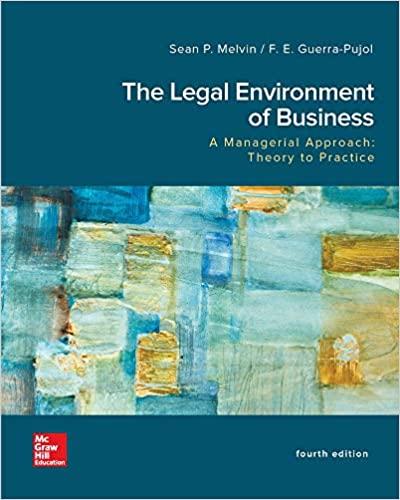The Internal Revenue Service (IRS) is the U.S. government agency in charge of federal tax collection and
Question:
The Internal Revenue Service (IRS) is the U.S. government agency in charge of federal tax collection and tax law enforcement. Like most government agencies, however, the IRS has limited resources. Simply put, the IRS doesn’t have enough time, people, or money to individually review and audit every single tax return. This legal reality—the fact that the IRS has limited resources for enforcement—has given rise to a form of strategic behavior among some taxpayers known as the “audit lottery.”30 In brief, the audit lottery is a gambit in which taxpayers claim tax benefits to which they are not entitled in the hope that the IRS will never audit their returns or, if audited, the improper benefits will not be discovered. The audit lottery is thus a strategy that attempts to exploit the IRS’s limited resources.
The IRS, though, is aware of this potential for strategic behavior. As a result, its audit selection procedures are not entirely random. Instead of random selection of tax returns, the IRS employs sophisticated statistical models that measure the “risk of tax avoidance” to decide which tax returns to audit.31 Specifically, the IRS assigns a risk score to every tax return using two statistical systems: the Discriminant Function System (DIF) and the Unreported Income DIF (UIDIF).32 The DIF computer program, by way of example, measures 66 different risk categories, such as the number of deductions and total income—though some of the categories are kept secret—in order to determine which tax returns have the most audit potential. The higher the risk score assigned to a tax return, the more likely a tax return will be selected for auditing. In short, the audit lottery is one lottery you don’t
want to win.
CRITICAL THINKING QUESTION
The DIF is a computer program the IRS uses to decide which tax returns to audit. Would it be legal to create and market a “counter-DIF” computer program to taxpayers to help them minimize their chances of being audited?
Step by Step Answer:

The Legal Environment Of Business A Managerial Approach Theory To Practice
ISBN: 9781260247800
4th Edition
Authors: Sean Melvin, Enrique Guerra-Pujol





